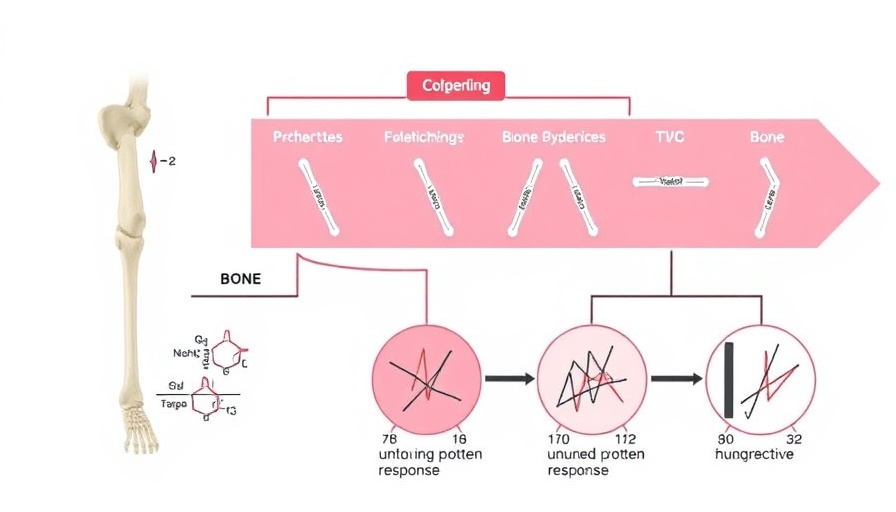
The Unfolded Protein Response: A Key Player in Bone Health
The unfolded protein response (UPR) pathway has been gaining attention in the scientific community due to its essential role in maintaining bone homeostasis. The UPR acts as a cellular guardian, responding to stress by ensuring proteins are correctly folded and functional. When this system falters, it can lead to various diseases, including those affecting the bones.
Connection Between UPR and Bone Disease
Research suggests a strong link between UPR dysfunction and cancer-associated bone diseases. As tumors grow, they can create a stressful environment within the bone microenvironment, leading to an imbalance in bone remodeling. This imbalance can manifest in issues like osteoporosis or bone metastasis, where cancer spreads to the bones, weakening them significantly.
Understanding the Mechanism: How UPR Affects Bone Cells
The UPR primarily involves three signaling pathways: IRE1, ATF6, and PERK. Each of these pathways contributes to crucial processes in osteoblasts (bone-forming cells) and osteoclasts (bone-resorbing cells). A malfunction in any of these signals can cause defective bone formation and increased bone loss, highlighting the UPR's pivotal role in bone health.
Potential Therapeutic Targets in Cancer Treatment
With the increasing recognition of the UPR in bone health, scientists are exploring its potential as a therapeutic target. For instance, pharmacological agents that can modulate UPR pathways may help restore balance in patients battling cancer-associated bone diseases. Such treatments could enhance bone quality and mitigate the deleterious effects of cancer on bone structure.
Future Predictions: The Intersection of UPR and Personalized Medicine
As research advances, the intersection of UPR modulation and personalized medicine may revolutionize treatment strategies. By tailoring therapies that address individual UPR pathways, healthcare providers could offer more effective solutions for patients at risk of bone complications due to cancer. This personalized approach promises to improve clinical outcomes and patient quality of life.
Conclusion: Why Understanding UPR Matters
The importance of the unfolded protein response in bone homeostasis cannot be overstated. As we deepen our understanding of this complex pathway, the potential for new therapeutic interventions becomes clearer. For patients suffering from cancer-associated bone diseases, these advancements offer hope for improved treatments and better management of their conditions.
 Add Row
Add Row  Add
Add 




Write A Comment